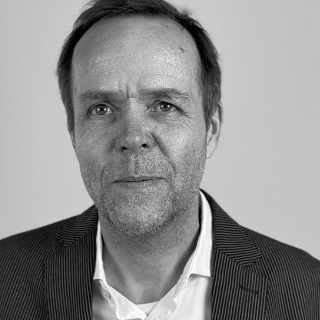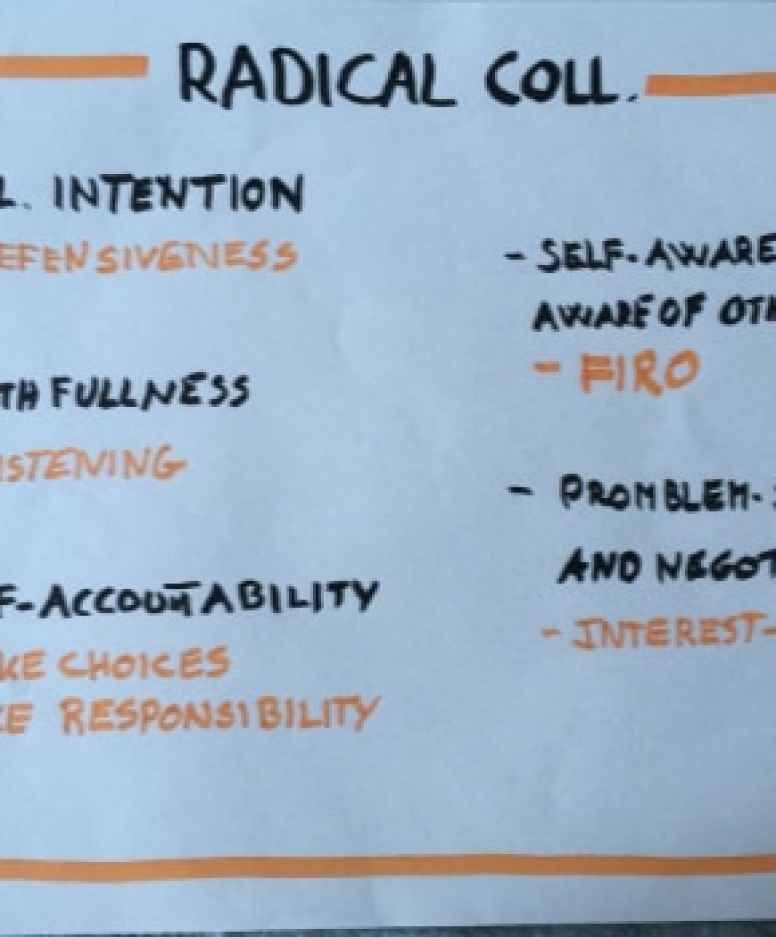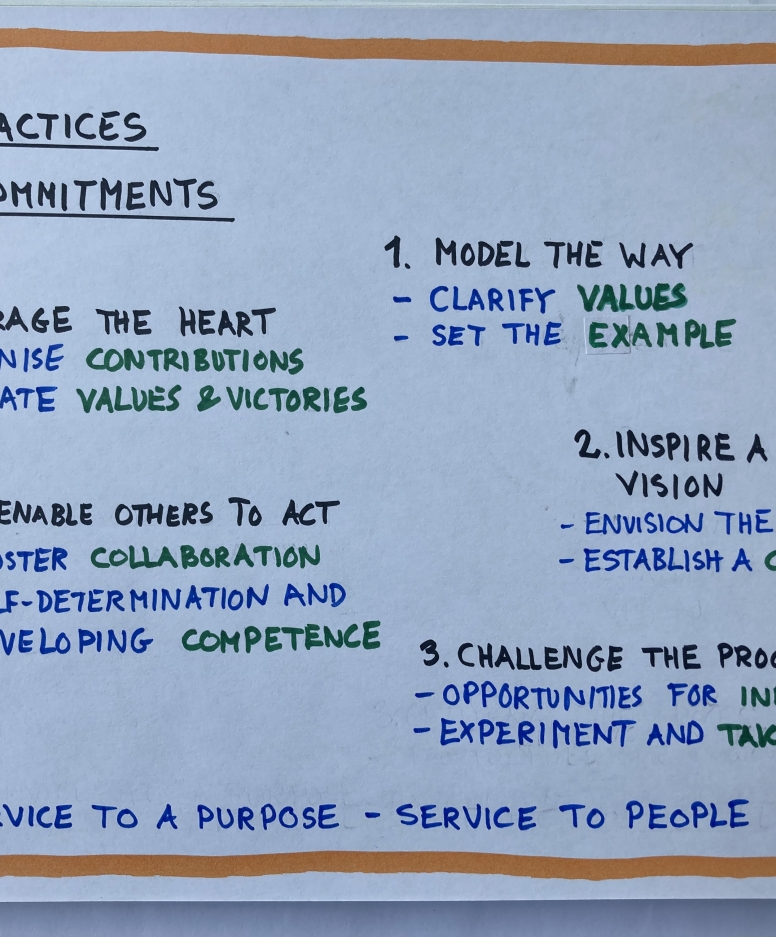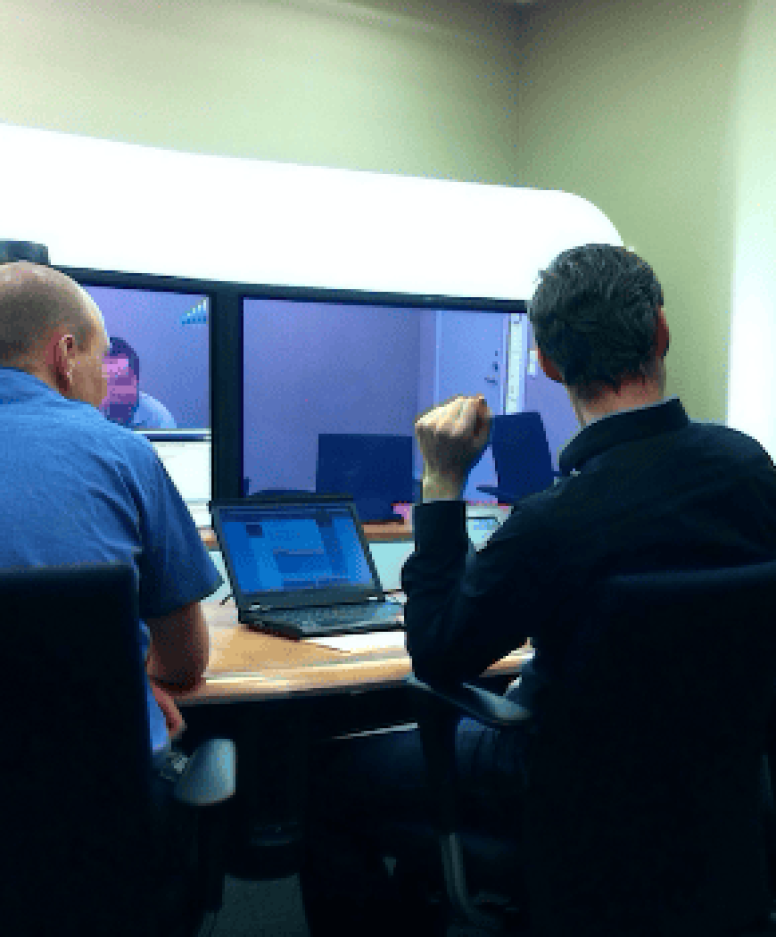You probably heard about Googles Project Aristotle and how they found out that psychological safety is the key to creating effective teams. That how a team works together is more important than who is on the team.
You probably also heard about the Agile Manifesto, and the first line reading People and Interactions over Processes and Tools.
You probably also know that a lot of companies around the world implement agile ways of working. Transform their organisations to meet the ever-increasing speed of the world. Try to break down silos, change cultures and build their organisations around self-organised teams.
You probably work in one of these companies.
If you do, you probably have first-hand knowledge about their lack of success.
My experience having done my best to helping a number of companies being agile is that we miss the Interactions part of the first line of the Agile Manifesto.
We miss training people in interacting in ways that creates Psychological Safety.
We know, where we want to be
With the words of Amy Edmondson we want teams, where we have a:
‘… shared belief held by members of a team that the team is safe for interpersonal risk-taking.’
We have a:
‘… sense of confidence that the team will not embarrass, reject or punish someone for speaking up.’
We want to build
‘… a team climate characterized by interpersonal trust and mutual respect in which people are comfortable being themselves.’
Or with the words of Google we want to:
Frame work as a series of learning problems, not execution problems
Model curiousity and ask more questions
Admit our own fallibility
Or with my words:
‘… in the best teams, members listen carefully to each another, speak freely, show vulnerability, are sensitive to each others feelings and needs and collaborate in non-defensive ways.’
How do we get there?
Let me introduce you to a concept that I have worked with for some years, Radical Collaboration®.
In Radical Collaboration® we create Psychological safety in teams and organisations by training people in Green Zone Communication. We train people skills like listening, handling of defenses and showing collaborative intention.
Altogether we train people in five skills all designed to help teams and organisations solve problems in a non-defensive and psychologically safe environment:
Collaborative Intention helps you handling your defences and trains you in how to avoid triggering other people’s defences. If you can handle your defences you keep your wits in critical situations.
Truthfulness helps you to listen to other people and give you tools to make other people listen to you. Listening is a starkly underrated skill in a lot of organisations.
Self-accountability makes you aware of the fact that you have a choice. It trains you in taking responsibility for your actions. Stand up for your opinions. Ask qustions, when you have doubts.
Self-awareness and awareness of others give insight into your own preferences around three parameters in your collaboration with others, Inclusion, Control and Openness. To which extent do you wish to include others and to which extent do you wish others to include you. To which extent do you wish to control others and to which extent do you wish others to control you. To which extent do you wish to open up to others and to which extent do you wish others to open up to you.
It comes with a personal test that gives you an insight into your own and your team members preferences on the three parameters. It give you a map of the teams preferences and a knowledge about your team members preferences that you can act upon, when you collaborate.
Interest-based problem solving is a method that helps you solve problems by identifying peoples interests in the solution. More often than not we jump to conclusions without having fully explored our options. Starting with mapping the interests behind the problem gives us a chance to create better and more sustainable solutions.
No matter what you work with I bet that over the years you have experienced increasing dependencies on and collaboration with colleagues from different departments and domains.
Therefore more and more organisations build on self-organising, Open Space, horisontical, agile, holistic, teal and whatever words we choose to best describe the break-down of silos and management layers.
Mainly based upon The Human Element, the principles behind Radical Collaboration® has been around for about 50 years. They are increasingly relevant.
Read and watch or both
Google Aristotle Project:
https://rework.withgoogle.com/print/guides/5721312655835136/
https://www.youtube.com/watch?v=-U8UQzr8T4k
Amy Edmondson:
Explaining Psychological Safety in Innovation Teams: Organizational Culture, Team Dynamics, or Personality, Jan 2004
Psychological Safety: The History, Renaissance, and Future of an Interpersonal Construct, 2014
Psychological Safety and Learning Behaviour in Work Teams, 1999
James Tamm and Ron J. Luyet: Radical Collaboration, 2004
The Agile Manifesto and the 12 Principles.
You probably also heard about the Agile Manifesto, and the first line reading People and Interactions over Processes and Tools.
You probably also know that a lot of companies around the world implement agile ways of working. Transform their organisations to meet the ever-increasing speed of the world. Try to break down silos, change cultures and build their organisations around self-organised teams.
You probably work in one of these companies.
If you do, you probably have first-hand knowledge about their lack of success.
My experience having done my best to helping a number of companies being agile is that we miss the Interactions part of the first line of the Agile Manifesto.
We miss training people in interacting in ways that creates Psychological Safety.
We know, where we want to be
With the words of Amy Edmondson we want teams, where we have a:
‘… shared belief held by members of a team that the team is safe for interpersonal risk-taking.’
We have a:
‘… sense of confidence that the team will not embarrass, reject or punish someone for speaking up.’
We want to build
‘… a team climate characterized by interpersonal trust and mutual respect in which people are comfortable being themselves.’
Or with the words of Google we want to:
Frame work as a series of learning problems, not execution problems
Model curiousity and ask more questions
Admit our own fallibility
Or with my words:
‘… in the best teams, members listen carefully to each another, speak freely, show vulnerability, are sensitive to each others feelings and needs and collaborate in non-defensive ways.’
How do we get there?
Let me introduce you to a concept that I have worked with for some years, Radical Collaboration®.
In Radical Collaboration® we create Psychological safety in teams and organisations by training people in Green Zone Communication. We train people skills like listening, handling of defenses and showing collaborative intention.
Altogether we train people in five skills all designed to help teams and organisations solve problems in a non-defensive and psychologically safe environment:
Collaborative Intention helps you handling your defences and trains you in how to avoid triggering other people’s defences. If you can handle your defences you keep your wits in critical situations.
Truthfulness helps you to listen to other people and give you tools to make other people listen to you. Listening is a starkly underrated skill in a lot of organisations.
Self-accountability makes you aware of the fact that you have a choice. It trains you in taking responsibility for your actions. Stand up for your opinions. Ask qustions, when you have doubts.
Self-awareness and awareness of others give insight into your own preferences around three parameters in your collaboration with others, Inclusion, Control and Openness. To which extent do you wish to include others and to which extent do you wish others to include you. To which extent do you wish to control others and to which extent do you wish others to control you. To which extent do you wish to open up to others and to which extent do you wish others to open up to you.
It comes with a personal test that gives you an insight into your own and your team members preferences on the three parameters. It give you a map of the teams preferences and a knowledge about your team members preferences that you can act upon, when you collaborate.
Interest-based problem solving is a method that helps you solve problems by identifying peoples interests in the solution. More often than not we jump to conclusions without having fully explored our options. Starting with mapping the interests behind the problem gives us a chance to create better and more sustainable solutions.
No matter what you work with I bet that over the years you have experienced increasing dependencies on and collaboration with colleagues from different departments and domains.
Therefore more and more organisations build on self-organising, Open Space, horisontical, agile, holistic, teal and whatever words we choose to best describe the break-down of silos and management layers.
Mainly based upon The Human Element, the principles behind Radical Collaboration® has been around for about 50 years. They are increasingly relevant.
Read and watch or both
Google Aristotle Project:
https://rework.withgoogle.com/print/guides/5721312655835136/
https://www.youtube.com/watch?v=-U8UQzr8T4k
Amy Edmondson:
Explaining Psychological Safety in Innovation Teams: Organizational Culture, Team Dynamics, or Personality, Jan 2004
Psychological Safety: The History, Renaissance, and Future of an Interpersonal Construct, 2014
Psychological Safety and Learning Behaviour in Work Teams, 1999
James Tamm and Ron J. Luyet: Radical Collaboration, 2004
The Agile Manifesto and the 12 Principles.

Thomas ElkjærSeniorkonsulent, Agile CoachDenne e-mail adresse bliver beskyttet mod spambots. Du skal have JavaScript aktiveret for at vise den.
Thomas Elkjær er Agil Coach og Træner i tryZone. Thomas har mere end 25 års erfaring som leder, projektleder, Scrum Master, Product Owner og Agil Coach. Han coacher og træner ledere og teams i agile metoder og rammeværk og i hvordan de gennem bedre samarbejde og gode relationer kan øge deres produktivitet og kvalitet.







